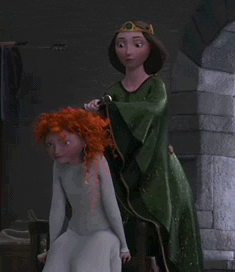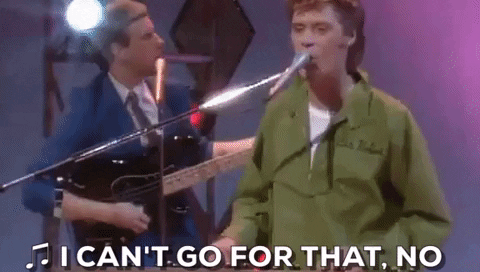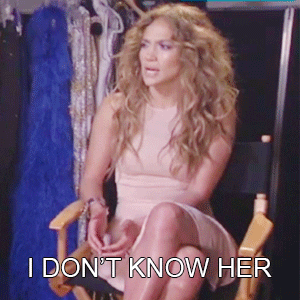I fantasize about quitting drinking sometimes. Usually at the very onset of a hangover. When I get in that mindset, I imagine how much more slowly I would age, how much healthier my insides would be, how much more money I would have, what a better role model I would be for my children. For some reason, I think of Jennifer Lopez, because I heard somewhere that she rarely or doesn’t drink, and that is her secret. If I stopped drinking, I would look like her. And then those concerns quiet down at the end of a long Saturday when we take the kids out to meet friends at the place with okay food but cold drinks in big glasses.
I think a lot about the intersection of parenting and imbibing, which is why I wanted to ask some honest witchy parents (please welcome a witch dad today) some questions about becoming parents after getting sober.
For how long were you sober when you learned were having a kid?
A.J. Daulerio, creator of the elegant and honest recovery newsletter The Small Bow and dad of two toddlers in Los Angeles:
“Less than a year. By the way, having a child is wisely frowned upon by many therapists and Sobriety clubs for people that early in sobriety. Also on the list is usually ‘Don't relocate,’ ‘Change jobs,’ or ‘Start a new relationship.’ I did all three of those things very dramatically within my first year. PLUS, I was entangled in a very public, very humiliating lawsuit which felt like it would last forever. In October of 2016 I had just found out some more demoralizing news regarding the trial and was in the middle of a very loud, pitiful, whine about it when J. came out of the bathroom, sat on the couch, and said the immortal words, ‘Not to pile on, but...’”
You went into recovery while pregnant: how do you think it would have been different after you became a parent:
Erin Khar, author of the forthcoming memoir Strung Out: One Last Hit and Other Lies That Nearly Killed Me and mom of 2 and 16 year old boys in New York:
“It was not ideal, in the sense that I do believe that recovery shouldn’t be dependent on doing it for someone else. I am so grateful that my son never knew me using. That said, it doesn’t always happen that way for people. In speaking to people who entered recovery as parents, I have always said that the greatest gift they can give their kids is showing them how to heal and take care of their mental health. Because addiction is a mental health issue.”
Did sobriety make you think differently or approach parenthood than you did before?
M., a witchy mom in New York, sober about nine years before adopting her now-preschool-age daughter:
“I leverage the support of a 12 step program in my ongoing sobriety, which made me much more aware of how important the steps are in being a parent. Sobriety helps me to stay in the moment with my daughter, helps me to be more accepting of where she is and where I am in life, helps me to embrace each shift in her life, and take a few things less personally. My more intensive efforts at my personal development and recovery has been downshifted too—there's just not as much time for me, so I have to make the moments when I get to meetings and when I get to engage with my recovery really count.”
A.J. Daulerio: “I am super, super lucky that I haven't relapsed at all since we've started a family so, right now, I only know parenthood sober. There's no sliding doors moment for me that involves my current happy family life and the way that I used to drink (and do lots and lots of drugs). To replace that stuff, I do hours and hours worth of therapy, self-help exercises, physical exercise, meditation, stepwork for Secret Society meetings, in order to get my mind right. If my routine is altered, I'm off a bit, and I'll start to feel punchy which directly impacts how engaged I am as a parent. Doing that work is not a chore for me, and I love it, so I keep the sobriety first and everything else works itself out.”
How did your parents talk to you about drugs/alcohol?
Erin Khar: “My parents did not talk to me about alcohol or drugs. Neither of them used drugs or drank that much. If we could turn back time, of course I wish my parents had spoken to me, not necessarily about drugs, but mental health. However, I hid things very well, so it wasn’t apparent to people around me for many years.”
A.J.: “My parents were pretty dumb. Sorry: ‘My parents did they best they could.’ The truth is I think my parents were very concerned with having a ‘weird kid’ so any talk about my bad feelings or depression or any of that stuff was usually treated with shame and blame, especially at a very young age.”
How much do you think parental input matters when it comes to addictive substances and habits?
Erin Khar: “I think parental input can absolutely play a role when it comes to addictive substances and habits. First, our children model our behavior. Secondly, being a source of guidance and support, rather than punishment, is a huge deal for kids.”
M: “I have at various points in my life tried to dissect where it is that things went wrong with me, like, what did I miss that got me on this path and how can I prevent it with my daughter? But it's pretty impossible to dissect. I grew up in the D.A.R.E. program, I knew really, really well not to mess around with drugs and I did not, and I had parents who encouraged us to be safe and smart rather than forbidding anything - I had a lot of understanding about the dangers involved. I think I didn't care, and the ratio of risk/reward was so off-balance for a long time. I got a lot of what I was looking for in alcohol for a long time.”
How has your experience with addiction changed how you have spoken or will speak with your kids about addictive substances?
Erin Khar: “With my older son, who is now 16, I have spoken with him about my mental health and drug history. I am a big believer in transparency around the subjects, especially as he may be genetically predisposed. The most important thing I have tried to impart to him is that he can come to me if he has a problem. I won’t judge him. There’s no shame. I think we have to remember that we can eliminate the shame around it. That doesn’t mean we are endorsing it.”
M.: “Right now—and this is subject to change—I focus on trying to give my daughter the tools and the esteem with the hope that she won't need a substance to feel good about who she is, and I hope that I have the strength and faith to give her the room to make her own choices about drinking and drugs when the time comes, and the capabilities to be open and available to her if she needs support. I don't think I can realistically convince her to never, ever drink or smoke pot or whatever the kids are going to be doing when she's older - but I hope to set a good example of what life can look like if you don't drink, and to show her how to ask for help if she needs it.”
A.J. Daulerio: “If my children begin to experiment with whatever, I'll just let them know our family history and suggest they reach out to me if they ever have a tough time. I'll be there to help them along with whatever it is they need when they need it, because that's what many people did for me along the way.”
Did you feel compelled to come up with any sort of sobriety strategy when you became a mother?
M: “Definitely There's a lot of wine culture around being a mom, as many of us know. Even among people who don't have kids, there's a lot of "You need to go home and have a glass of wine" after a tough day at work or a tough day of running out the clock with an energetic 3 year old who likes everyone and everything she comes into contact with. Most of the time, it's nodding and smiling, but also, it's a lot of saying ‘Oh, I don't drink.’ I've been, at times in my life, really self-conscious about saying that, but I've found that I am less concerned with it now. To be honest, though, it was a LOT harder to date when I stopped drinking than it has been to be a parent who doesn't drink.”
Erin Khar: “While I don’t feel this way anymore, I found many mechanisms that helped me. Things like letting someone else know, just speaking up about what I was feeling or struggling with relieved a lot of the pressure. Stepping away when I need to, getting outside and going for a walk, even excusing myself to the bathroom and letting cool water run over my hands. All of these simple actions can help. And I always reminded myself that I could take it a minute at a time if I needed to.”
What is your internal barometer, with an older kid, where ‘normal’ experimenting ends and more problematic behavior begins?
Erin Khar: “I think that it is normal to expect some level of experimentation. The biggest red flag for me is the ‘why.’ Is a kid experimenting because they are curious or there’s peer pressure? Or are they experimenting because they are trying to escape or manage their feelings, anxiety, or depression? We can’t control the decisions our kids make, particularly as they get older. We can keep the communication open and be willing to get them help if a problem arises.”
At what moments have you felt cravings or temptation?
M: “I miss it during holiday celebrations. My in-laws make an amazing fondue that has alcohol in it and I don't feel comfortable having that. Also, when I am super-stressed and want to escape, I miss having that off-ramp. Some people never miss it, but I am not one of those people. It's never in crisis moments—it's usually in really mundane but shitty moments.”
A.J. Daulerio: “I've been abstinent long enough to be past the cravings part. And when things get tense, I'll go take a walk or call a fellow alcoholic and I'm pretty good to go. I have more trouble with nostalgia, mostly. The past two Thanksgivings I got a little wistful thinking about drinking beer, smoking cigarettes, and playing pool in my parent's basement from 10 a.m. until pass-out time. I don't let it linger, though.”
What goes through your mind when you’re at a playdate or a family party or a kid party and the parents have been going at it for a few hours?
M: “Mostly, ‘Oy.’ Then I try to just enjoy it - I kind of love being the only person not drinking in certain situations. People get really honest and let their guards down, and I love that. The only time it sucks is when there's someone in the room who is very concerned about why I am not drinking. I very rarely mind talking about it - I know that the friend who told me that he was sober saved my life, because when I wanted to stop, I knew someone who had done it and could tell me what I needed to do. You never know how it could help someone to hear that it's totally OK if you don't think you should be drinking anymore. I just don't love to lead with it in a group situation.”
End credits
I hope you enjoyed today’s issue of Evil Witches, a newsletter for evil witches. Please pass it along if you know someone who'd like this sort of thing a few times a week. If you thought today’s newsletter was really good, please consider becoming a paying subscriber to support the work, or at least forward to a bunch of friends and encourage to do so!
If you’re interested in writing a guest post, have a suggested topic or have any general questions or you can reply right to this newsletter. You can also follow us on Instagram and have witchy conversations on Twitter too.
One witchy thing







Passing on this helpful comment from reader Sara W., in case any witches out there are looking for resources:
"Love your newsletter, and this was a great issue. For anyone fantasizing about quitting drinking, I can't recommend enough the book This Naked Mind - it completely changed my relationship to the substance."
Please feel free to add other references that have helped you with your relationship to intoxicants and whatnot.